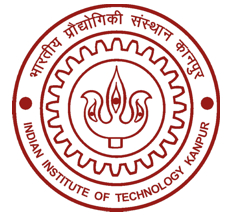|
Home page
Content
Announcements
Schedule
Class Notes
Assignments
Quiz Solutions
Projects
Student Presentations
Grading Policy
|
Course Schedule
The course schedule
is listed in this page. You can download
the lecture slides from here by clicking on
the appropriate link and the class notes from the class notes section
from the link bar to the left. You may have to map the lectures to the
module in which it is being covered.
| Lecture** |
Date |
Topic |
| 1/2 |
|
Overview of speech recognition,
Modeling the speech
production mechanism, Source-system model of speech, Physiological and
Mathematical categorization of speech sounds |
| 1/2 |
|
Overview of speech recognition,
Modeling the speech
production mechanism, Source-system model of speech, Physiological and
Mathematical categorization of speech sounds |
| 3/4 |
|
Discrete time processing of
speech signals, Relevance
of the DFT, the ZT, convolution, filter banks, and analytical pole-zero
modeling in speech recognition |
| 3/4 |
|
Discrete time processing of
speech signals, Relevance
of the DFT, the ZT, convolution, filter banks, and analytical pole-zero
modeling in speech recognition |
| 3/4 |
|
Discrete time processing of
speech signals, Relevance
of the DFT, the ZT, convolution, filter banks, and analytical pole-zero
modeling in speech recognition |
| 3/4 |
|
Discrete time processing of
speech signals, Relevance
of the DFT, the ZT, convolution, filter banks, and analytical pole-zero
modeling in speech recognition |
| 5/6 |
|
Short time Fourier
Analysis and Spectral estimation models for Speech - DTFT, DFT,
Filter banks |
| 5/6 |
|
Short time Fourier
Analysis and Spectral estimation models for Speech - DTFT, DFT,
Filter banks |
| 5/6 |
|
Short time Fourier
Analysis and Spectral estimation models for Speech - DTFT, DFT,
Filter banks |
| 7/8 |
|
Pole zero modeling and All pole
modeling of speech, LPC model for speech, Basics of Speech Coding |
| Q1 |
|
Quiz 1 |
| 7/8 |
|
Pole zero modeling and All pole
modeling of speech, LPC model for speech, Basics of Speech Coding |
| 7/8 |
|
Pole zero modeling and All pole
modeling of speech, LPC model for speech, Basics of Speech Coding |
| 7/8 |
|
Pole zero modeling and All pole
modeling of speech, LPC model for speech, Basics of Speech Coding |
| 7/8 |
|
Pole zero modeling and All pole
modeling of speech, LPC model for speech, Basics of Speech Coding |
| 7/8 |
|
Pole zero modeling and All pole
modeling of speech, LPC model for speech, Basics of Speech Coding |
| 11/12 |
|
Homomorphic speech signal
deconvolution, real and complex cepstral analysis |
| 11/12 |
|
Homomorphic speech signal deconvolution, real and
complex cepstral analysis |
| 13/14 |
|
Features for speech
recognition: MFCC, RASTA-PLP, Issues in speech feature vector
extraction, dynamic
features, feature selection |
| 13/14 |
|
Features for speech
recognition: MFCC, RASTA-PLP, Issues in speech feature vector
extraction, dynamic
features, feature selection |
| 13/14 |
|
Features for speech
recognition: MFCC, RASTA-PLP, Issues in speech feature vector
extraction, dynamic
features, feature selection |
| 13/14 |
|
Features for speech
recognition: MFCC, RASTA-PLP, Issues in speech feature vector
extraction, dynamic
features, feature selection |
| 15/16 |
|
Spectral and cepstral distances
in speech recognition, Vector Quantization |
| 15/16 |
|
Spectral and cepstral distances
in speech recognition, Vector Quantization |
| 15/16 |
|
Spectral and cepstral distances
in speech recognition, Vector Quantization |
| Q2 |
|
Quiz 2 |
| 17/18 |
|
GMMs for speaker and Language
Identification
|
| 17/18 |
|
GMMs for speaker and Language
Identification |
| DTW |
|
Dynamic Time Warping (The
slides will be emailed to all registered students) |
| DTW |
|
Dynamic Time Warping |
| DTW |
|
Dynamic Time Warping |
| HMM |
|
Hidden Markov Models for
isolated word and continuous speech recognition - Part I |
| HMM |
|
Hidden Markov Models for
isolated word and continuous speech recognition - Part I |
| HMM |
|
Hidden Markov Models for
isolated word and continuous speech recognition - Part II |
| HMM |
|
Hidden Markov Models for
isolated word and continuous speech recognition - Part II |
| SP*** |
|
Student Project Presentations in
the evenings at the end of semester
|
** Pls. note that lecture
numbers and names are prefixed, but will be covered in different number
of lecture hours
Rajesh
Hegde<rhegde@ucsd.edu>
Department of Electrical Engg. IIT Kanpur
|
